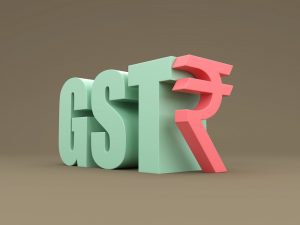
The government’s major revamp of the Goods and Services Tax (GST) comes into force today, bringing sweeping rate cuts and structural changes.
Prime Minister Narendra Modi, in a televised address on Sunday, described the rollout as the beginning of a “bachat utsav” (savings festival) for citizens. “From tomorrow in the nation, ‘GST bachat utsav’ will commence. Your savings will increase and you will be able to buy your favourite things. ‘GST bachat utsav’ will benefit all sections of the society,” the Prime Minister said.
He further said the new framework would make compliance easier, boost investments, and ensure every state is an equal partner in India’s development journey.
GST revamp from September 22: Top updates
• GST slab reduction: The GST Council decided to reduce tax slabs from four (5 per cent, 12 per cent, 18 per cent, 28 per cent) to two (5 per cent and 18 per cent). A special 40 per cent rate will continue on sin goods and select luxury items.
• Life insurance exemption: All individual life insurance policies, including term plans, endowment, and Unit Link Insurance Plan (ULIP), are now fully exempt from GST. Reinsurance of these policies has also been brought under the exemption.
• Health insurance exemption: Individual and family health insurance plans, including those for senior citizens, are now free from GST.
• Passenger transport rates: Road transport services will continue to be taxed at 5 per cent without ITC, with an option to pay 18 per cent with ITC. Air travel remains unchanged: 5 per cent for economy and 18 per cent for business class.
• Tax on local delivery services: If delivery services are provided via e-commerce operators by unregistered vendors, the tax liability will shift to the operator. Registered providers will pay GST themselves.
• Delivery service rate: Local delivery services have been fixed at an 18 per cent GST rate.
• Medicines not fully exempt: Medicines will continue to attract 5 per cent GST. The Finance Ministry clarified that exempting them completely would block manufacturers from claiming ITC on inputs, leading to higher production costs.
• Leasing and renting: Leasing or renting goods without an operator will attract the same GST rate as the goods themselves. For example, leasing a car will be taxed at 18 per cent, the same as purchasing it.
• Imports under GST 2.0: The revised rates will also apply to imports. Integrated GST (IGST) will be levied at the updated rates from September 22, unless specifically exempted.
• Milk products: UHT (dairy) milk is now fully exempt. Plant-based milk (including soya and almond milk) will attract a uniform 5 per cent GST, instead of earlier higher rates.
• Cosmetics rate cut: GST on face powders and shampoos has been reduced. The Ministry of Finance said the decision was aimed at simplifying the system rather than favouring large companies.
Source: Business Standard


